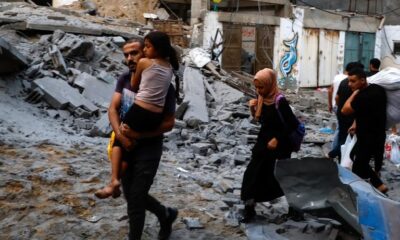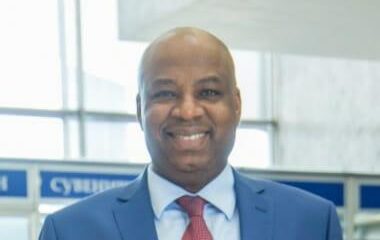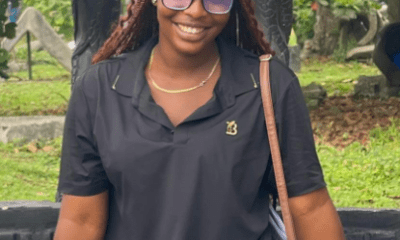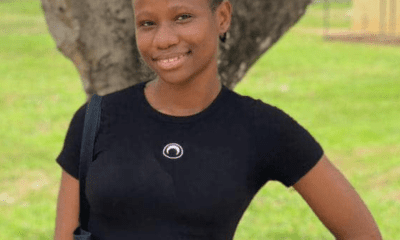Global Issues
Russia-Africa relations transiting the Crossroads -By Kestér Kenn Klomegâh
In Conakry, the capital of Guinea, he told Minister of Foreign Affairs Morisanda Kouyate, to reignite working sessions of the Russian-Guinean intergovernmental committee on trade and economic cooperation, which had not met since 2019. Across Africa, Russia has created almost in every country Russia created the joint intergovernmental committee on trade and economic cooperation. The joint commissions meet regularly, yet there are little tangible economic impacts both ways.
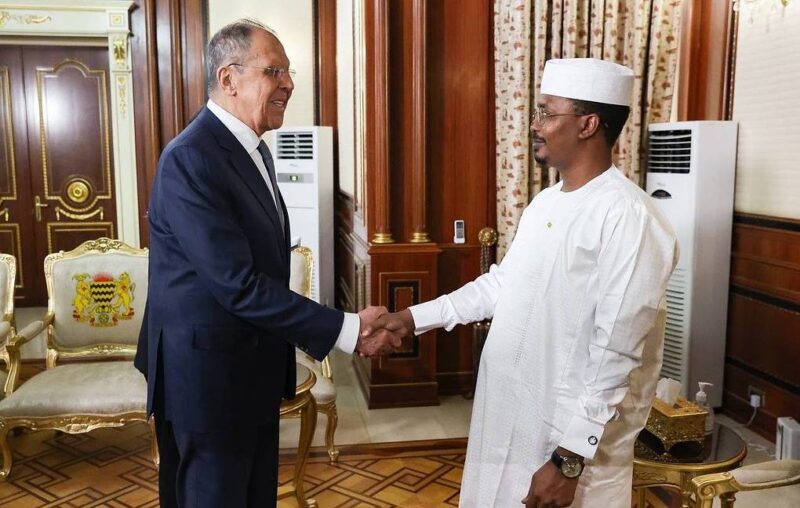
In pursuit of implementing several bilateral agreements from the first and second summits, Russia-Africa relations is no longer at the crossroads. With Kremlin’s anti-colonial fight under the belt and at the core of its policy, Russian Foreign Minister Sergey Lavrov has, with uttermost practical seriousness, undertaken another whirlwind Francophone African tour (including Burkina Faso, Chad, Congo and Guinea) early June 2024.
Lavrov was in Mali in 2023, visited Kenya in an outreach in East Africa. In addition, the Foreign Minister went to South Africa for BRICS. Late 2023 he toured North Africa, where Russia also seeks to strengthen ties in the vacuum created by the diminishing popularity of Western powers. But the significance of the June round-trip, especially at this time when geopolitical tensions are heightening, need not be underestimated, but certain unique questions still persist and there remains, of course, many different interpretations.
With certainty, Russia has noticeably intensified its relationship with French-speaking Africa. It has focused on dealing with growing French neo-colonialism which obstructs Moscow’s desire to expand geopolitical and military influence especially in West African region. The republics of Burkina Faso, Chad, Niger and Mali have strengthened their relationships with the Kremlin, as the leaders frequently shuttle between their capitals and Moscow.
With dignity, African leaders are respectfully honouring special high-class invitations to summits, conferences and special high-level meetings which proliferate over the past few years, symbolic as there are but little visible results. Notwithstanding the progress in the post-Soviet relations, African leaders have to keep in mind their basic responsibility of transparency, probity and accountability. And what is essential, while holding political power, would be determined by their recognizable economic achievements.
Analysis indicates that Moscow’s geopolitical and military inroads is steadily gaining unshakeable grounds. It took an assertive approach in creating the ‘Africa Corps’ and is rapidly expanding its military presence in Africa. As well-shown, the Francophones were exhausted of France’s exploitative approach and desperately in search for an alternative to building a more fairer and more mutual economic relations with Russia.
For more than three decades of abandoning Africa following Soviet’s collapse, Russia is seemingly making a return and back to the continent where it consistently blames United States and Europe’s dominating influence on politics, democracy, economy and control of natural resources. It is, however, Russia’s turn to share the African cake. Russia is not late to the African party. It can still participate, at least, in regaining part of its Soviet influence and scramble for the continent’s huge untapped resources.
As noticeable Russia has been disparaging the United States and Europe in the continent, and most often displays claims of promoting a fairer multipolar world, and further aspires for creating better conditions in the Global South. The most important issue is making serious steps in convincing Africans to show a combined sympathy and passion for its full-scale ‘special military operation’ in Ukraine. In addition to that, reiterates heightened interest in a long investment list encompassing, in principle, nearly all economic sectors across Africa.
In the classic sense, diplomacy which aims for ensuring sustainable development is possible only in the scenario where both sides could adjust their divergences through sincere negotiations to reach supposedly positive results. It strictly has something closely-connected with implementation especially at this highly competitive rivalry and changing geopolitical situation. Disparaging the Western world and Europe could not be interpreted as asserting influence, but instead the official visits have to display the realities and benefits of long-standing relations, an exclusive and better alternatives needed to improve the critical economic status of countries across Africa.
Assessing the dynamics of Lavrov’s early June Francophone African tour (including Guinea, Congo, Chad and Burkina Faso), streaming with strong anti-Western sentiments and the promise of greater military backing against jihadists, has offered to strengthen economic, trade and above all its greatest priority – military cooperation. Chad is one of the last pieces Moscow is trying to put together in the Sahel region, which not long ago was France’s sphere of influence. France has seen its troops dismissed from Mali, Niger and Burkina Faso by their military regimes since 2022. The French Sahel countries continue to be beset by widespread complaints of poor governance, nepotism, and economic distress. These are highly vulnerable further to internal conflicts if economic situation is not systematically addressed, and Russia has not disposed of financial resources, rather (behind closed doors) engaged in bartering military training Burkinabes, for the services of Russian instructors and for Soviet-era equipment in exchange for unlimited access to natural resources.
An analytical study from the Institute of African Studies, for instance, showed that Russia secured access to gold and diamonds in the Central African Republic, cobalt in Congo, gold and oil in Sudan, chromite in Madagascar, platinum and diamonds in Zimbabwe, and uranium in Namibia and it is looking for more on the continent.
In the Central African Republic, Russian mercenaries have been providing security since in 2018 and in return have gained access to some of the country’s gold and diamond mines. President Faustin-Archange Touadéra has Russian personal guards and also Russian security for his property. Historically, coups in Mali in 2020 and 2021, in Burkina Faso in 2022 and in Niger in 2023, brought military juntas critical of the West to power. All three eventually ordered French and other Western forces out, and instead turned to Russia for military support.
Niger ordered the U.S. to withdraw its troops and close its multimillion dollar flagship investment in a sprawling military and spy base in Agadez earlier this year, after a meeting with a U.S. delegation ended poorly. The decision has upended U.S. counterinsurgency operations in Africa’s Sahel.
During the four French-speaking African tour, Sergey Lavrov, practically, interacted with Francophone leaders – Capt. Ibrahim Traoré (Burkina Faso), Denis Sassou N’Guesso (Congo), General Mahamat Idriss Deby (Chad) and Colonel Mamady Doumbouya (Guinea). He also held a series of exclusive meetings with his colleagues, Foreign Ministers – Jean Claude Gakosso (Congo), Morissanda Kouyaté (Guinea), Karamoko Jean-Marie Traoré (Burkina Faso) and Abderaman Koulamallah (Chad).
It could be interpreted that Lavrov’s main task was mainly to (re)assure ‘African friends’ of Moscow’s readiness to push for a stronger bilateral relations, and popularize the idea of a multipolar world order. For more than three decades after Soviet’s collapse, Russia created its own segregated country and turned its back to Africa, thus the United States and former European colonial powers dominated the continent. Today it has abandoned its dreams of becoming part of Europe. Russia now preaches the gospel of multipolar world order, the possibility of creating an integrated global society with more equitable and polycentric principles.
Lavrov’s talks with Chad’s General Mahamat Idriss Deby, who was in the Kremlin in January 2024, centered on broadening cooperation in various spheres. Similar messages were transfered to the leaders in Guinea, Congo and Burkina Faso. In fact, many had thought Lavrov would cut the white ribbon marking the completion of infrastructure projects that were concretely agreed on, at least, during the first Sochi summit held back in October 2019. Five years on since Sochi, Lavrov has repeated those traditional accolades, and reaffirmed cooperation in the same economic spheres mentioned previous years such as energy, construction and infrastructure modernization, minerals production and processing, agriculture, healthcare, education and tourism.
“We have agreed that the main attention at this stage should be given to efforts that will allow us to bring our trade and economic ties, investment interaction to the high level that political dialogue, ties in the field of defense and security, humanitarian and educational spheres have reached. We agreed that our Chadian friends will convey to us their wishes about those forms of interaction, sectors of their economy where they consider the presence of Russian economic operators useful,” Lavrov noted during the media briefing.
Landing in West African country of Guinea located on the Atlantic coast, Lavrov expressed an unwavering confidence for Russian industrial enterprises to work in the country. Russian aluminium giant Rusal already has operations in Guinea, and currently negotiating to expand bauxite mining operations to neighbouring Sierra Leone. It plans to reopen diplomatic office in Freetown.
Meanwhile, Russia’s Rusal has a long history of operating in Guinea. Its Guinean enterprises, Kindia Mining Company and Friguia bauxite-alumina complex, supply raw materials to Russian manufacturers. Rusal is implementing a project to develop Dian Dian, the world’s largest bauxite mine. The corporation has invested over $300 mln in Guinea. Russian-Guinean relations go back to Soviet times: the beginnings of Rusal’s activity in building factories and the railway started back then.
In Conakry, the capital of Guinea, he told Minister of Foreign Affairs Morisanda Kouyate, to reignite working sessions of the Russian-Guinean intergovernmental committee on trade and economic cooperation, which had not met since 2019. Across Africa, Russia has created almost in every country Russia created the joint intergovernmental committee on trade and economic cooperation. The joint commissions meet regularly, yet there are little tangible economic impacts both ways.
Foreign Ministry website statement indicated that Russia would provide an unprecedented support by despatching more Russian instructors to Burkina Faso in fighting militant groups. Russia has embarked on ousting France from the West Africa, Sahel region. Russia has taken, on behalf of the French-speaking African countries, the uphill task to fight neocolonialism.
Lavrov spoke at a news conference in the country’s capital of Ouagadougou and frankly expressed growing frustration with their traditional Western partners such as France and the United States. Lavrov always back away blames on African leaders’ nepotism, incompetencies and poor governance as well as gross lack of strategic development policies that have mostly resulted in majority of the population living in abject poverty.
“Russian instructors have been working here and their number will increase,” Lavrov said, adding that Russia has been helping train Burkina Faso’s military and law enforcement personnel. “We have supplied and will continue to supply military equipment to help strengthen Burkina Faso’s defense capability and allow it to eliminate the remaining terrorist groups.”
Burkina Faso, a landlocked nation of 20 million, has been ravaged in the past eight years by violence from extremist groups loosely affiliated with al-Qaida and the Islamic State group, and from the fighting between government forces and the militants.
Located in West Africa, Burkina Faso has topped the list of the world’s biggest neglected crises for the second year in a row, according to the Norwegian Refugee Council. A record 6.3 million out of 20 million people will need humanitarian assistance in 2024, the aid organization said, with many on the brink of starvation. Two million people remain internally displaced, about 60% of them children. Many have been traumatized, but resources to help them are scarce.
Lavrov is steadfastly pursuing Russia’s multipolar aspirations in Africa. Russia’s political ambitions are also directed at leading the Global South, which geographically includes Africa. But its economic influence is relatively weak in the continent. Challenges largely remain on the landscape. While, most possibly, Lavrov has useful insights into the dynamics of trade and investment, these are carried out by the private sector. The geopolitical reality and trade promotion Lavrov reiterates cannot be accomplished when Soviet-era rules and regulations are still observed. Russia closes it borders for African trade when custom tariffs are constantly raised combined with lack of logistics, pathways for revitalizing investment partnership necessarily require active involvement by Russian financial institutions. Potential Russian entrepreneurs have virtually little knowledge about local African market conditions, most often fear to take risks, and worse scenario pays little attention to R&D.
In order to generally increase levels of bilateral trade, both sides need to simplify procedures for investors and exporters, and assist in the creation of reliable and effective communication channels between Russian and African regulators. Trade preferences are completely absent in Russia-African trade relations. Africa’s economic presence is a deep hole in the Russian Federation. A combination of bureaucratic barriers, lack of awareness of the economic environment and opportunities, complex legal and regulatory policy frameworks, and relatively high market entry costs deter African companies from actively doing business in Russia. These put together convincingly can be described as the most incongruous and the weakest Russia-Africa economic diplomacy in the evolving multipolar world.
Some foreign and African experts – and even political leaders, seriously argue that if Russia desires to maintain a marginal and one-way relationship, especially economic engagement, then African leaders, the estimated 380 million elite and middle-class, and entrepreneurs should seriously consider strengthening their traditional corporate relations with Europe and the Western world. Telling Africa to shun Western and Europe, where their markets are located. African diaspora remittances to Africa amounted to $68 billion annually, according to World Bank. African leaders are highly-educated and can discern what is good from what is bad. African leaders equally have capabilities to determine their own political directions. There are state institutions responsible for different sectors of African countries. Besides that, Africa has regional economic blocs as well as the reputable African Union.
In practical terms, Africa has to broaden its corporate business with regions where it can market its products and services for revenue. China and Russia are both leading advocates for multipolar world. Unsurprisingly for instance, China is steadily taking advantage of the geopolitical complexities and contradictions, now venturing or penetrating into the former Soviet space and further down to Europe. President Xi Jinping publicly acknowledged the primary reasons for the European trip in May 2024 was to seek more opportunities for Chinese investments, manufacturing hub, and stepping up its business ties in the European Union. China has business in the United States.
It is time for Russia to act in a multilateral manner, and it is time for Africa to appreciate the fact that Russia comes without any demands for liberalization or democratization. But at the same time with a bit of a symbolism, it is really about time to distinguish and separate the rhetorical chuff, diplomatic niceties, from concrete reality in the foreign policy fixtures. These Francophones, like many other African countries, have to deal with, first and foremost, the practical economic issues like unemployment, widening inequality, rising crimes, economic hardships and provision of basic utilities for the impoverished population. This would entail advancing the values of their political independence and the current struggle to attain economic sovereignty.



